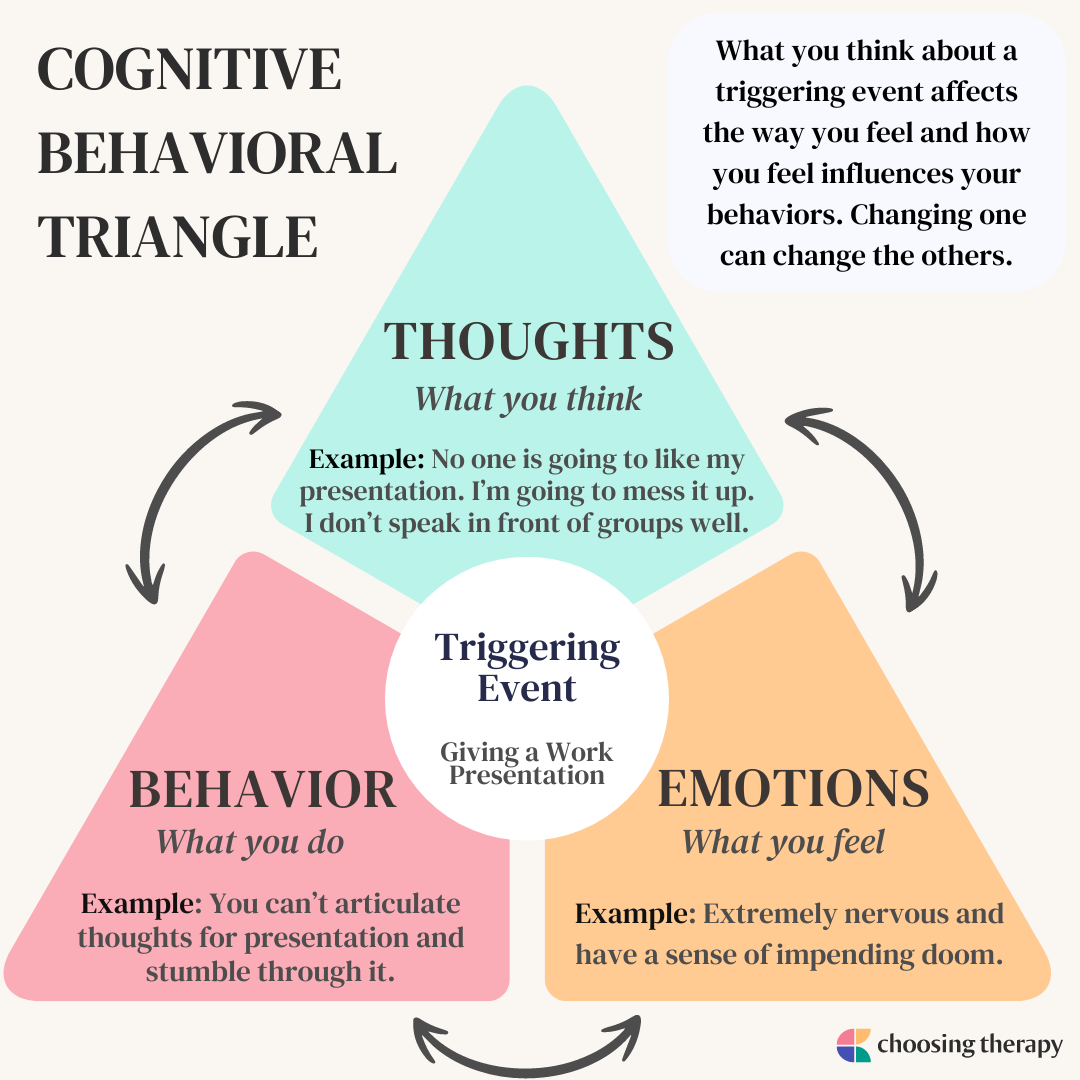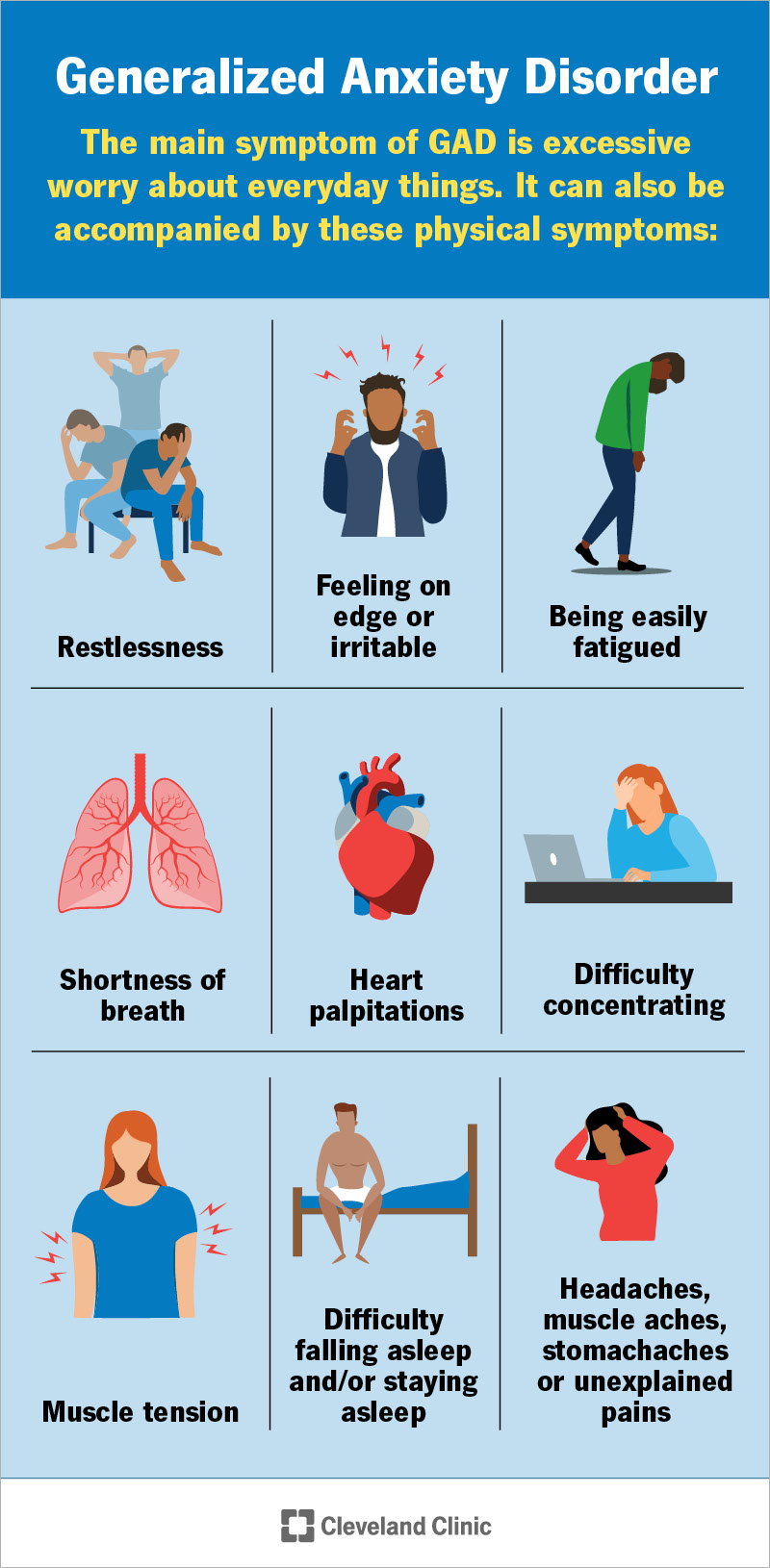Exploring Various Strategies in Coaching for Stress And Anxiety Condition for Long-term Modification
When dealing with anxiousness disorders, it's vital to explore a variety of counseling techniques. Each technique provides distinct insights and tools to help you manage your signs and symptoms effectively. You could discover that integrating strategies can generate the most effective outcomes. However, understanding the nuances of these approaches is key to promoting lasting modification. What happens if the ideal mix could release a new level of psychological wellness for you?
Recognizing Anxiety Problems: A Quick Introduction
Stress and anxiety disorders, which impact millions of individuals worldwide, can greatly affect day-to-day life. You may experience frustrating sensations of concern or worry that appear unmanageable. These sensations can cause physical signs like an auto racing heart, sweating, or even dizziness. Usual kinds of stress and anxiety conditions consist of generalized anxiousness condition, panic attack, and social anxiousness problem. Each has special signs, yet they all share a propensity to interrupt your routine and relationships.Understanding the origin creates of your stress and anxiety is essential. It could stem from genes, mind chemistry, or life experiences. Identifying your triggers can aid you manage your responses much better. It is very important to keep in mind that you're not alone in this struggle. Lots of people deal with similar obstacles, and looking for assistance is a strong step towards sensation better. By discovering about anxiety problems, you're already on the path to understanding and managing your condition extra successfully.
Cognitive-Behavioral Treatment: Testing Adverse Idea Patterns

Determining Adverse Thought Triggers
Identifying the certain triggers behind your adverse ideas can be essential in handling stress and anxiety when you come across moments of distress. Beginning by focusing on circumstances that provoke sensations of fear or anxiety. Is it a congested space, a future due date, or a conversation with particular people? Write down these circumstances in a journal. This will aid you recognize patterns in your reasoning. Likewise, notice physical experiences that accompany your adverse thoughts, like an auto racing heart or tightness in your upper body. By determining these triggers, you get insight right into what's sustaining your stress and anxiety. Understanding these links is the initial step in challenging those ideas and ultimately gaining back control over your emotional feedbacks.

Replacing Thoughts With Positives
Testing unfavorable thought patterns is an important action in changing your state of mind and decreasing stress and anxiety. You may usually locate yourself entraped in cycles of self-doubt or tragic thinking. Instead of allowing these thoughts determine your sensations, practice changing them with sensible alternatives or positive affirmations. For instance, when you assume, "I can not manage this," change it to, "I can take care of obstacles one step at a time (Counseling services for anxiety)." This easy modification can considerably influence your mood. Consistently identifying and responding to these adverse ideas aids create a much healthier interior dialogue. Remember, it takes time and effort, yet consistently exercising this strategy can cause enduring adjustment, empowering you to face anxiety with restored self-confidence and durability
Structure Coping Techniques Together
Changing adverse thoughts is only the start of taking care of stress and anxiety efficiently. To create long-term adjustment, you need to develop coping approaches that encourage you. Cognitive-Behavioral Therapy (CBT) helps you recognize and challenge those purposeless idea patterns. With each other, you and your counselor can discover exactly how these thoughts effect your sensations and behaviors.Start by establishing sensible strategies, like journaling or mindfulness workouts, that enable you to confront anxiety head-on. When you face your fears progressively, you'll find out to respond differently.

Mindfulness and Acceptance-Based Approaches: Cultivating Present-Moment Understanding
As you browse the complexities of anxiousness, incorporating mindfulness and acceptance-based methods can considerably improve your capacity to cultivate present-moment understanding. By concentrating on the present moment, you'll locate that you can observe your ideas and feelings without judgment. This method aids you acknowledge your anxiety without really feeling bewildered by it.Engaging in mindfulness workouts, such as deep breathing, body scans, or guided meditations, enables you to ground on your own in your existing experience. Acceptance-based methods motivate you to embrace your emotions instead of battle versus them. When you accept your feelings, they shed their power over you.Incorporating these practices into your everyday regimen can transform how you react to stress and anxiety. You'll develop resilience and find out to navigate demanding circumstances with greater convenience. Inevitably, growing present-moment recognition lays page the foundation for lasting change, empowering you to lead a much more satisfying life.
Exposure Treatment: Facing Anxieties Slowly
Exposure therapy helps you confront your worries in a steady means, making it much less frustrating. You'll find out strategies to encounter anxiety-provoking circumstances detailed, while also constructing coping strategies to handle your responses. This strategy equips you to take control and lower anxiety gradually.
Steady Exposure Strategies
When facing anxiousness, gradually facing your concerns can be an effective means to reclaim control. This method, called progressive exposure, entails slowly exposing yourself to the scenarios or items that activate your anxiousness. Start with less daunting circumstances and gradually function your way up to even more tough ones. If you're worried of public talking, you might begin by talking in front of a mirror, after that progress to sharing ideas with a good friend, and at some point address a small team. Each action aids desensitize you to the worry, constructing your confidence in time. Remember, it's important to pace yourself and celebrate little success as you move via this process, enhancing your ability to take care of stress and anxiety efficiently.
Structure Coping Techniques
Structure effective coping methods is important for handling anxiety, especially as you challenge your fears slowly. One effective method is direct exposure therapy, where you begin by facing your concerns in a regulated manner. Begin with less frightening scenarios and gradually work your way approximately more tough scenarios. This progressive direct exposure helps desensitize you to anxiousness sets off, making them less overwhelming.Incorporate relaxation strategies, such as deep breathing or mindfulness, to soothe your mind during direct exposure. Track Check Out Your URL your development, commemorating little victories along the method to enhance your self-confidence. Remember, it's alright to take your time; the goal isn't perfection however constant improvement. By building these techniques, you'll encourage yourself to browse stress and anxiety and accept life extra completely.
Psychodynamic Treatment: Uncovering Source of Stress And Anxiety
Psychodynamic treatment explores the unconscious mind, revealing the origin of your anxiety - Counseling services for anxiety. By analyzing your thoughts, sensations, and previous experiences, this approach helps you uncover underlying disputes and unsolved concerns that may add to your existing anxiety. You'll deal with a therapist to investigate childhood experiences, relationships, and emotional patterns that shape your responses today.As you gain look at this site insight into these much deeper layers of your subconscious, you'll start to identify just how previous events influence your present behavior. This understanding can result in catharsis, allowing you to refine feelings you may have suppressed.Through the restorative relationship, you can likewise recognize defense reaction that might have established gradually, providing a clearer course to change. Inevitably, psychodynamic treatment equips you with the tools to resolve your anxiousness at its core, promoting lasting change in your emotional health
Alternative and integrative Techniques: Combining Methods for Greater Efficiency
Integrating various healing methods can boost your trip toward taking care of stress and anxiety better. By incorporating components from cognitive-behavioral therapy, mindfulness techniques, and alternative approaches, you can produce a personalized technique that addresses your distinct demands. You could make use of cognitive-behavioral techniques to challenge negative thought patterns while incorporating mindfulness workouts to ground on your own in the present moment.Additionally, exploring all natural practices such as yoga or reflection can advertise relaxation and minimize anxiousness symptoms. This mix allows you to establish better self-awareness and resilience.Experimenting with these diverse techniques can aid you uncover what reverberates most with you. Remember, it has to do with locating a harmony that works, as opposed to staying with a single strategy. This integrative strategy not only uses prompt relief yet likewise fosters long-lasting abilities for taking care of anxiety, empowering you to recover control over your life.
The Role of Assistance Systems: Building Durability With Link
While it may seem that taking care of stress and anxiety is a singular trip, having a solid support group can play a crucial duty in your durability. Bordering on your own with understanding friends, household, or assistance groups develops a secure room where you can openly share your experiences and feelings. When you get in touch with others, you remind yourself that you're not the only one in this struggle.These partnerships offer motivation and can offer useful coping techniques that have benefited others. It's also a chance to gain perspective; buddies can assist you see scenarios in a different way, decreasing feelings of isolation.Moreover, emotional assistance cultivates a feeling of belonging, which can considerably minimize anxiousness symptoms. By leaning on your support system, you can build resilience and take on difficulties better. Keep in mind, connecting for aid suggests stamina, and it can make all the difference in your trip toward taking care of anxiety.
Regularly Asked Concerns
What Are the Common Signs And Symptoms of Stress And Anxiety Disorders?
You might experience restlessness, tiredness, difficulty focusing, irritation, muscle stress, and sleep disturbances. Physical signs and symptoms can include quick heartbeat, sweating, and shivering. Acknowledging these indications early can assist you look for suitable assistance and treatment.

How Much Time Does Treatment Commonly Last for Stress And Anxiety Problems?
Therapy for anxiety disorders normally lasts anywhere from a few weeks to numerous months. It actually depends on your private requirements, progression, and the methods your therapist uses to assist you manage your stress and anxiety successfully.
Can Drug Be Used Together With Treatment for Anxiousness?
Yes, medicine can absolutely be used together with treatment for anxiousness. Combining both methods frequently boosts treatment effectiveness, aiding you manage signs while discovering underlying concerns with therapy. Always consult your doctor for personalized guidance.
Exist Self-Help Strategies for Handling Stress And Anxiety?
Yes, there are numerous self-help strategies for managing stress and anxiety. You can exercise mindfulness, participate in routine exercise, maintain a balanced diet plan, establish a regular, and use deep breathing strategies to help in reducing stress and anxiety signs successfully.
Just how Do I Know if I Required Professional Help for Anxiety?
You ought to think about seeking expert assistance for anxiousness if it disrupts day-to-day live, creates substantial distress, or if self-help approaches aren't functioning. Trust fund your reactions; connecting can cause much better coping skills and support. Common types of anxiety disorders include generalised anxiousness disorder, panic problem, and social anxiousness problem. When you come across moments of distress, acknowledging the specific triggers behind your negative ideas can be necessary in handling stress and anxiety. Replacing unfavorable ideas is just the start of handling stress and anxiety effectively. By analyzing your ideas, sensations, and previous experiences, this method helps you reveal underlying disputes and unsettled issues that may contribute to your present anxiety. It's also a chance to acquire perspective; good friends can aid you see circumstances in a different way, decreasing sensations of isolation (Counseling services for anxiety).Moreover, psychological support promotes a sense of belonging, which can significantly alleviate anxiety signs and symptoms